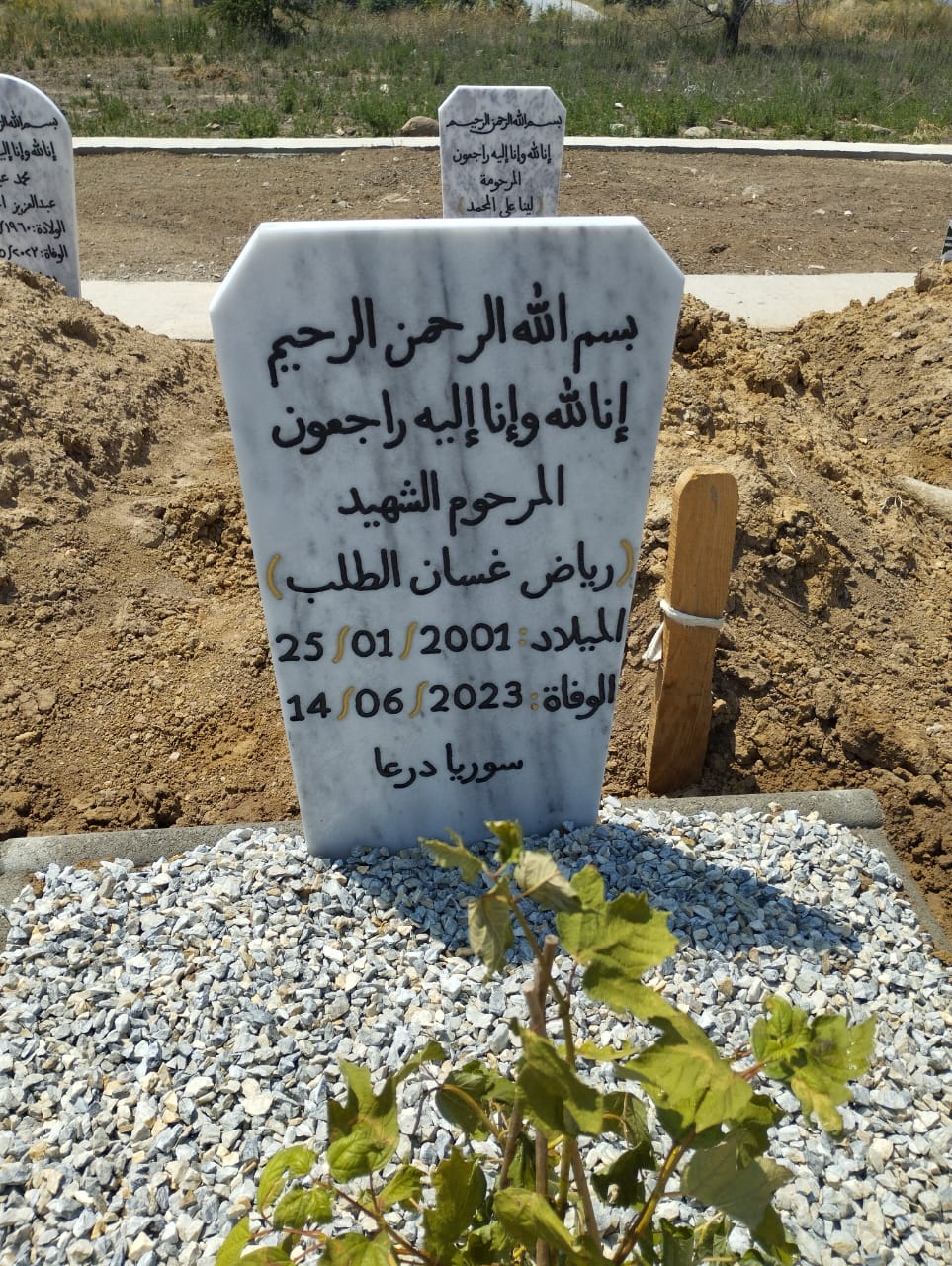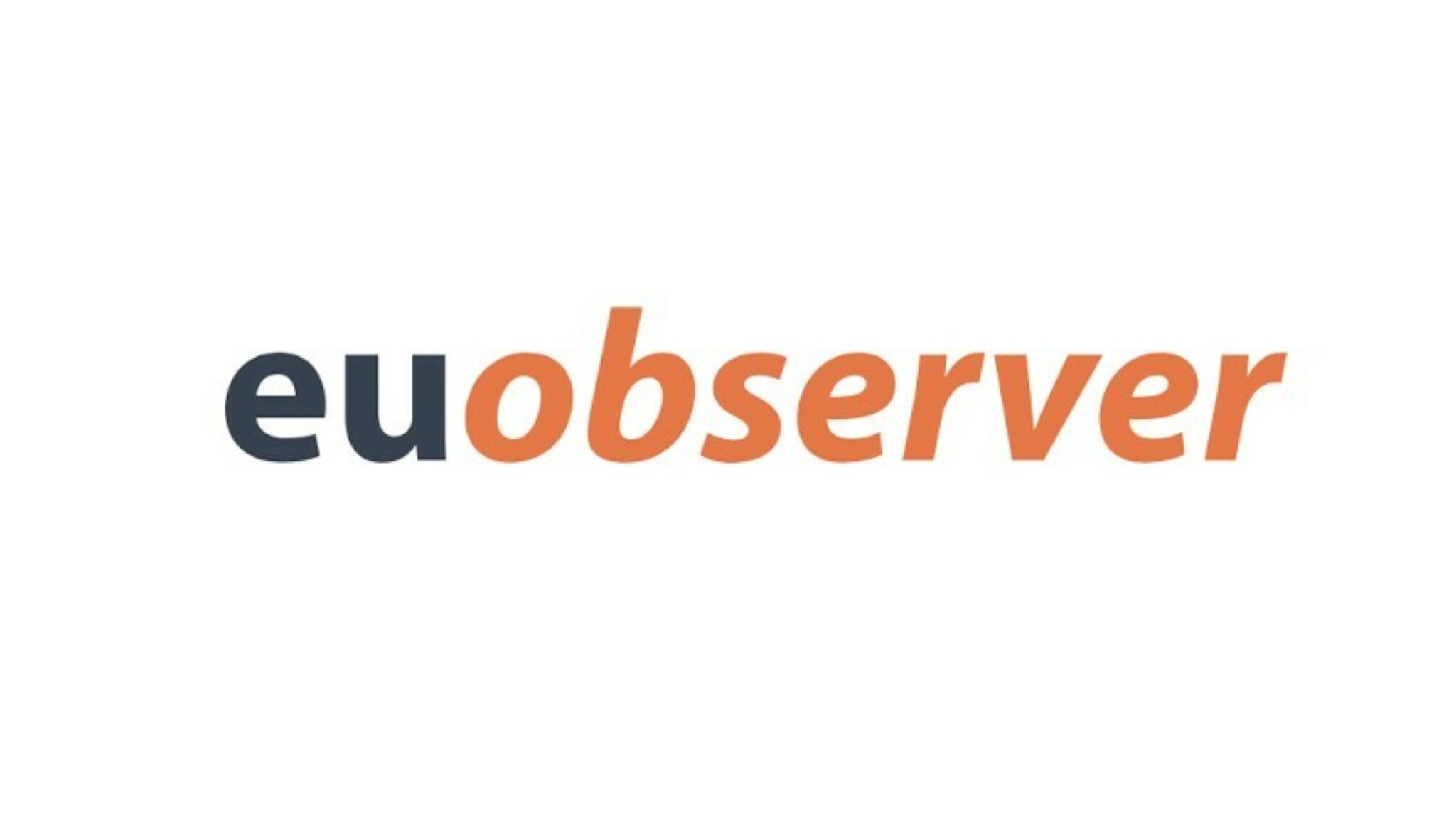*First Published on EUObserver
BY ODAY AL TALAB, LONDON, 14 June 2024
Oday is a Syrian who lives in the UK. His brothers Mohammed and Riyadh fled Syria to Europe. They ended up on the Adriana, an overcrowded trawler that left Libya with an estimated 750 people from Syria, Pakistan and Egypt onboard, before sinking off the coast of Pylos, Greece, a year ago today (14 June 2023).
Oday’s brother Mohammed survived, but Riyadh died.
Survivors told Amnesty International and Human Rights Watch that the Greek Coast Guard towed the boat with a rope, causing it to capsize. Afterwards, rescue attempts were slow. Only 104 people survived.
One year after the shipwreck, Oday recounts his experiences and calls out for justice and accountability.
My name is Oday Al Talab. I had two brothers, Mohammed and Riyadh, but Riyadh died in the Pylos shipwreck.
In my city in Syria, Daraa, I worked as a journalist. Snipers of the regime shot me twice because of my media activity in Syria, where I was documenting violations against civilians. Due to my health and continuous targeting by the regime, I left Syria.
I consider our situation one of displacement. We were displaced in Daraa because they [the Syrian authorities] bombarded our homes and neighborhoods. My brothers left Syria because of this. They also reached the age of compulsory military service and did not want to join the regime’s army. The choices for young people in Syria are death, migration or displacement.
Searching for my brothers
When I first heard about the shipwreck, I had no information about whether this was the ship that my brothers were on, but I knew there was a high possibility it was. I immediately arranged my journey to Kalamata, Greece, where they had brought the survivors and the drowned.
I went to the hospital, then to the coast guard. They didn’t give any further details about the incident. The suffering continued as I went between the coast guard, the police and the hospital, then back to the coast guard. They eventually shared a list with the names of 104 survivors of different nationalities.
I searched for my brothers’ names. I found Mohammed.
I asked about my other brother, Riyadh. They said they did not have any information about him. They told me: “We will take you to see your brother, but you’re not allowed to ask him about your other brother or ask him certain questions. You are not allowed to cry. You will see him for one minute or less.” When they took me to see him, there was an iron fence separating us.
“Where is Riyadh?” Mohammed immediately asked me. I asked him the same question. He could not control himself, he started crying. His face was bruised from what he had endured. The police took him inside, back to a warehouse not suitable for animals, let alone human beings. They wouldn’t let me console my brother.
Many people from Daraa were on the ship that sank. Many Syrian families contacted me to find out about the fate of their children who were on board. I started helping them by asking information about their family members. From the list of survivors, we singled out the Syrian names and their families were contacted. They were reassured that their children were alive. For those whose names we couldn’t find, their situation was the same as my missing brother.
Uncooperative authorities
The Greek authorities treated us very badly. They said there were 82 bodies, but they wouldn’t give us any more information even though we are the relatives of those who died.
To identify bodies, I gave a DNA sample in Kalamata, along with details about my lost brother, including his height and weight, age, a picture of him, distinctive marks, everything. The next day I went to Athens to search the hospitals, to ask about the bodies, to find information about the fate of my lost brother. I was told that the 104 survivors were transferred to a camp near Athens. I went and asked to see my brother Mohammed again. There were many families and relatives of the victims and survivors there too. The authorities told us that the waiting time was long.
I asked the camp manager if they could allow all the family members from Daraa to enter the camp together, to be given one hour to see the Syrian survivors. The request was accepted. We had procured some supplies for the survivors, at our own expense: mobiles with internet connection, clothes, food, personal care items. We saw some Syrian survivors still wearing the same clothes they wore when the boat sank. A young man was covering his body with a blanket because he didn’t have any clothes.
Accepting loss
On our fourth day in Greece, I asked the coast guard if anyone had been rescued, other than the 104 survivors. They said “no”. At that point, anyone still missing was dead. This is being logical; this is being honest. We lost hope of finding the missing. Based on the information we had, we announced the death of my younger brother Riyadh.
A week after returning to the UK I received an email from the Greek authorities telling me that my brother Riyadh’s body had been identified and to contact them for funeral arrangements.
Even when I told the Greek authorities I wanted Riyadh to be buried in Greece, they repeatedly told me to contact the Syrian embassy. I refused to do so. Being from an opposition family, we do not recognise the Syrian regime, and we do not deal with it.

I was finally told that the burial could take place in Greece, but there is no Islamic cemetery in Athens. The Greek authorities told me they would not cover the costs of an Islamic burial. I had to take care of the burial myself.
When they released Riyadh’s body, I travelled back to Greece and reached out to a Muslim funeral service company. We collected my brother’s body from a mortuary fridge in Athens and we buried Riyadh in a Muslim cemetery eight hours away from Athens.
If the Greek authorities have the bodies and data of those who died, how is it possible that not all the bodies have been returned to their families after one year?
This is wrong. We want justice. We want those responsible to be held accountable.
I started the Justice for the Boat Victims initiative, an online campaign in support of victims and families of the shipwreck. The campaign assisted families of the missing with the search for their relatives. We made calls to NGOs and media outlets, posted photos and information.
We created a WhatsApp group for the families of the victims so they could communicate, and we advised them on how to communicate with the Red Cross and Red Crescent and how to conduct DNA tests. We helped survivors connect with lawyers.
Based on witness testimony, the Greek authorities were involved in the sinking of the boat. We want justice and accountability. Over 500 of the people drowned remain at sea. They are not numbers. They had dreams, they had families, and they had rights. They had a right to live.
Amnesty International, who coordinated this op-ed, have a petition for justice for the victims and families of the Pylos shipwreck.

